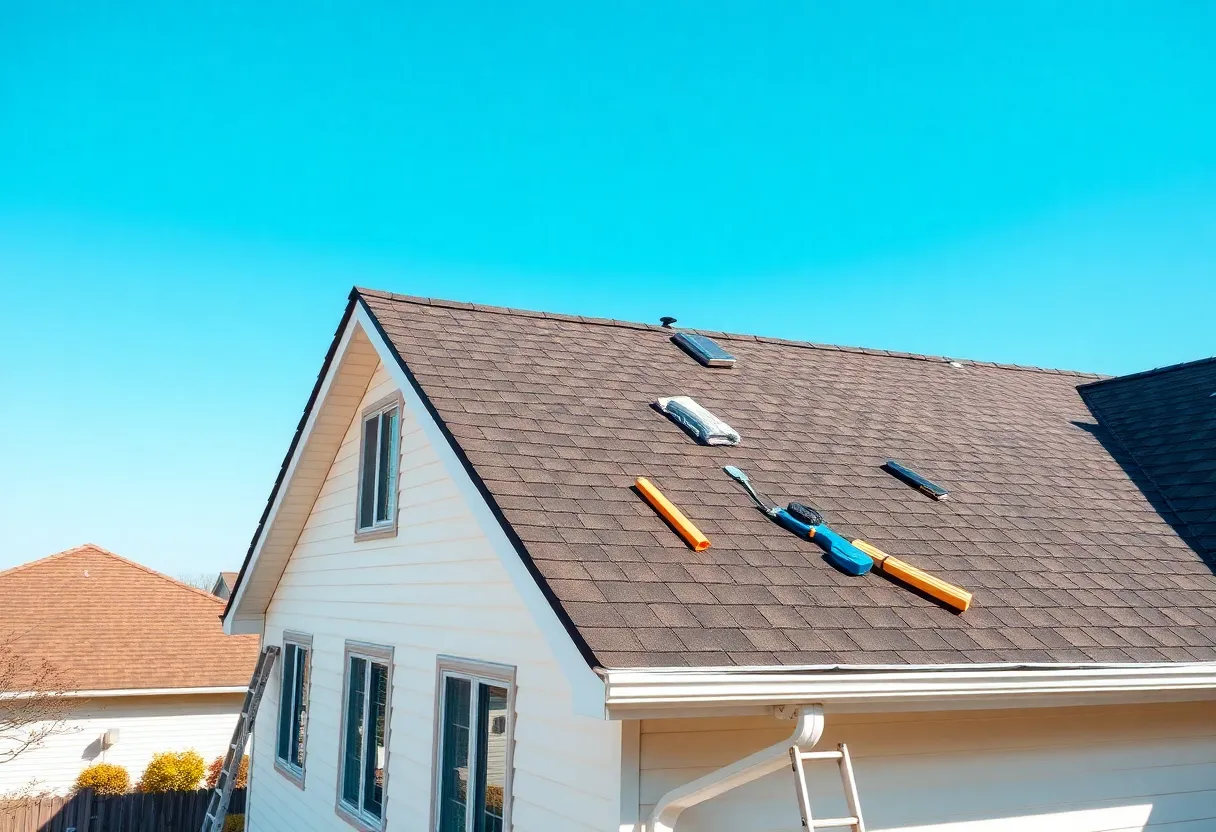How to Successfully Re-Roof Your Home: A Comprehensive Step-by-Step Guide
Re-roofing your home is not only a significant investment but also a crucial element in maintaining its structural integrity. An aging or damaged roof can lead to numerous issues, including water damage and reduced energy efficiency. This comprehensive guide will walk you through the process of re-roofing, ensuring that you are well-prepared and informed.
Understanding the Need for Re-Roofing
The first step in re-roofing your home is recognizing when it is necessary. Key indicators of a failing roof include:
- Missing or damaged shingles
- Leaks or water stains on ceilings and walls
- Excessive granules in gutters
- Visible wear and tear
If you find yourself experiencing any of these issues, it may be time to consider re-roofing your home.
Planning Your Project
1. Set Your Budget
A well-defined budget is critical before undertaking a roofing project. Factor in materials, labor, and unexpected costs. Prices vary significantly based on the choice of materials, whether you opt for asphalt shingles, metal roofing, or tile shingles.
2. Choose Your Roofing Materials
Each type of roofing material comes with its advantages and disadvantages:
- Asphalt Shingles: Economical and easy to install but has a shorter lifespan.
- Metal Roofing: Durable and energy-efficient, but the initial cost can be high.
- Tile Shingles: Aesthetic appeal with longevity, though heavier and more expensive.
3. Obtain Necessary Permits
Check local building codes and regulations. You may need a permit to re-roof your home legally. This ensures that your work meets safety and quality standards.
Preparation for the Re-Roofing Process
1. Gather Your Tools and Materials
You’ll need the following tools and materials for the re-roofing process:
- Roofing nails
- Shingles or other chosen materials
- Hammer or nail gun
- Utility knife
- Ladder
- Roofing felt or underlayment
- Safety gear (goggles, helmet, harness)
2. Prepare the Work Area
Clear the surrounding area and ensure safe access to the roof. Set up tarps to catch debris falling from the roof. This will help with cleanup and protect your landscaping.
3. Inspect and Repair the Roof Deck
Before you begin laying new materials, inspect the roof deck for signs of decay or damage. Any compromised sections must be repaired to provide a solid foundation for the new roofing materials.
The Re-Roofing Process
Step 1: Remove Existing Roof Materials
Begin by stripping away the old roofing materials. Use a pry bar to remove shingles, starting at the top. Work your way down to avoid damaging the underlying deck.
Step 2: Install Roofing Underlayment
Once the old materials are removed, lay roofing felt or another underlayment over the entire roof surface. This serves as an additional barrier against moisture. Overlap each row to ensure complete coverage.
Step 3: Lay Down New Roofing Material
Starting from the bottom edge, begin installing your chosen roofing material. Follow the manufacturer’s guidelines regarding spacing and overlap. Make sure to secure each shingle with the appropriate number of nails to avoid future lifting or damage.
Step 4: Install Flashing
Flashing is an essential component of your roofing system. It protects joints and seams, particularly around chimneys, vents, and valleys. Ensure proper installation to prevent leaks.
Step 5: Ventilation
Proper ventilation is key to extending the lifespan of your roof. Make sure to include venting in the ridge or soffit to allow for air circulation, reducing moisture buildup and extending the durability of roofing materials.
Final Steps and Cleanup
1. Inspect Your Work
Upon completion, conduct a thorough inspection of your work. Check for missed nails, insecure shingles, and proper installation of flashing. Make any necessary adjustments to ensure a watertight seal.
2. Clean Up
Remove all debris and tools from the work area. Dispose of the old roofing materials responsibly, following local waste management guidelines.
3. Enjoy Your New Roof
Once the project is complete, take the time to appreciate your newly installed roof. A well-executed re-roofing project enhances your home’s curb appeal and protects it against the elements.
Maintenance Tips for Your New Roof
Inspect Regularly
Schedule regular inspections, especially after heavy storms or extreme weather, to catch any potential issues early. Look for loose shingles and check gutters for debris.
Keep Gutters Clean
Regularly clean your gutters and downspouts to avoid water backup that can lead to leaks and damage in the roof structure.
Trim Overhanging Branches
Ensure that tree branches are trimmed back from the roof to prevent them from scratching the roofing material and to reduce the risk of fallen debris.
Watch for Moss and Algae Growth
In damp climates, moss and algae growth can occur. Consider installing zinc or copper strips to inhibit growth or use appropriate cleaning solutions.
Conclusion
Successfully re-roofing your home requires careful planning, specialized knowledge, and diligent execution. Following the steps outlined in this guide will not only help you through the process but will also equip you with the understanding necessary to maintain your new roof. Always consider hiring a professional if you are uncomfortable with any aspect of the process. With the right approach, you can ensure that your re-roofing project is a success, providing protection and peace of mind for years to come.
Author: STAFF HERE NEWBERRY
The NEWBERRY STAFF WRITER represents the experienced team at HERENewberry.com, your go-to source for actionable local news and information in Newberry, Newberry County, and beyond. Specializing in "news you can use," we cover essential topics like product reviews for personal and business needs, local business directories, politics, real estate trends, neighborhood insights, and state news affecting the area—with deep expertise drawn from years of dedicated reporting and strong community input, including local press releases and business updates. We deliver top reporting on high-value events such as the Newberry Opera House performances, Newberry Arts Fest, and the Newberry County Fair. Our coverage extends to key organizations like the Newberry County Chamber of Commerce and the Newberry Museum, plus leading businesses in manufacturing and agriculture that power the local economy such as Amick Farms and Newberry Mills. As part of the broader HERE network, including HEREAiken.com, HEREBeaufort.com, HEREChapin.com, HERECharleston.com, HEREClinton.com, HEREColumbia.com, HEREGeorgetown.com, HEREGreenwood.com, HEREGreenville.com, HEREHiltonHead.com, HEREIrmo.com, HEREMyrtleBeach.com, HERENewberry.com, HERERockHill.com, and HERESpartanburg.com, we provide comprehensive, credible insights into South Carolina's dynamic landscape.




 Mays Contracting
Mays Contracting

